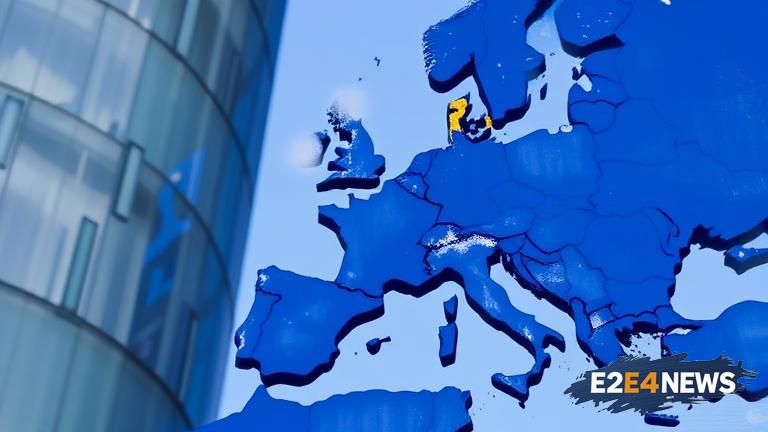The Euro area has experienced a notable improvement in its external position, with a significant increase in exports and a decrease in imports. This has led to a substantial surplus in the trade balance, which is expected to continue in the coming months. However, the International Monetary Fund (IMF) has warned that this improvement may be short-lived, as potential imbalances in the economy could lead to instability. The IMF has cautioned that the Euro area’s economic growth is still heavily reliant on external factors, such as global demand and trade policies. Furthermore, the IMF has expressed concerns about the high levels of debt in some Euro area countries, which could make them vulnerable to economic shocks. The IMF has also warned that the Euro area’s banking sector is still fragile, with many banks struggling with high levels of non-performing loans. In addition, the IMF has noted that the Euro area’s labor market is still characterized by high levels of unemployment, particularly among young people. Despite these challenges, the Euro area has made significant progress in recent years, with many countries implementing structural reforms to improve competitiveness and boost economic growth. The European Central Bank (ECB) has also played a crucial role in supporting the economy, through its monetary policy measures. The ECB has kept interest rates low and implemented quantitative easing to stimulate economic growth and inflation. However, the IMF has warned that the ECB’s policies may not be enough to address the underlying imbalances in the economy. The IMF has also cautioned that the Euro area’s economic growth may be impacted by external factors, such as a slowdown in global trade or a rise in protectionism. In recent months, the Euro area has experienced a significant increase in exports, particularly to countries outside the EU. This has been driven by a number of factors, including a weak euro and a rise in global demand. However, the IMF has warned that this increase in exports may not be sustainable, as global trade policies are subject to change. The IMF has also noted that the Euro area’s trade balance is still vulnerable to fluctuations in global commodity prices. Despite these challenges, the Euro area remains one of the world’s largest economic blocs, with a highly developed and integrated economy. The Euro area is also home to many of the world’s leading companies, particularly in the automotive and manufacturing sectors. However, the IMF has cautioned that the Euro area’s economic growth may be impacted by a number of external factors, including a slowdown in global trade or a rise in protectionism. The IMF has also warned that the Euro area’s economic growth may be impacted by internal factors, such as a rise in populism or a decline in investor confidence. In conclusion, while the Euro area has made significant gains externally, the IMF has cautioned that potential imbalances in the economy could lead to instability. The IMF has warned that the Euro area’s economic growth is still heavily reliant on external factors and that the banking sector is still fragile. The IMF has also noted that the labor market is still characterized by high levels of unemployment, particularly among young people. Therefore, it is essential that policymakers in the Euro area take steps to address these challenges and ensure that the economy is resilient to external shocks.
